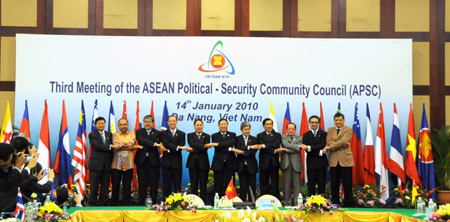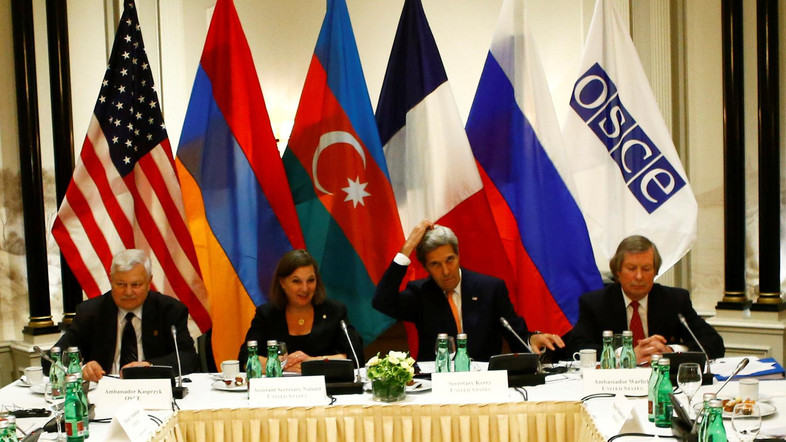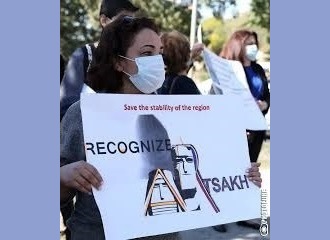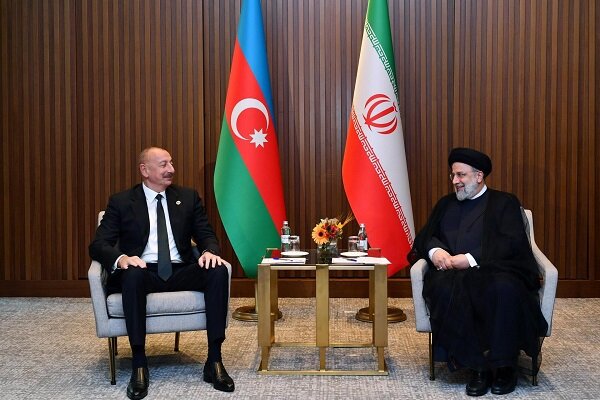
The Strategic Blind Spot
The European Union’s Black Sea Strategy, formally adopted on May 28, 2025, declares ambitions for regional "security, prosperity, and resilience" yet systematically overlooks the legal bedrock of Black Sea stability: Türkiye’s authority under the 1936 Montreux Convention. This omission is not merely procedural but strategic, as the convention grants Türkiye exclusive governance over the Turkish Straits—a role critical to balancing NATO-Russian tensions and preventing non-littoral militarization. By marginalizing this treaty-based custodianship, the EU undermines its own security objectives and risks destabilizing the Black Sea through diplomatic negligence.[1]
Montreux Convention: Türkiye’s Non-Negotiable Black Sea Framework
The 1936 Montreux Convention remains the cornerstone of Black Sea security, granting Türkiye exclusive authority to regulate naval transit through the Turkish Straits. This treaty enshrines Türkiye’s sovereignty to balance strategic interests by restricting non-littoral warships' tonnage, duration of stay, and weaponry while allowing civilian passage during peacetime.[2]
The EU’s May 2025 strategy ignores this legal architecture. Its proposed "Maritime Security Hub" and "Connectivity Agenda" omit mechanisms acknowledging Türkiye’s regulatory role, instead centralizing threat monitoring under EU/NATO control. For instance, the Hub’s real-time surveillance framework lacks provisions for Türkiye’s Montreux-mandated oversight of naval access, despite Türkiye possessing 16 frigates and 13 submarines—the region’s most capable navy. Similarly, the €12 billion connectivity investments prioritize EU geopolitical objectives (e.g., bypassing Russia) without conditioning projects on Montreux-compliant transit protocols.[3]
This omission invites strategic erosion: Externalizing security to NATO-led initiatives—like demining operations under the Bulgaria-Romania-Türkiye trilateral—circumvents Türkiye’s custodial authority. Such precedents risk destabilization by encouraging non-compliance, as seen when the U.S. pressured Türkiye to admit UK minehunters in 2024, testing treaty limits.[4]
Flawed Foundations of the EU Strategy
The EU’s strategy entrenches asymmetric cooperation by relegating Türkiye to peripheral "partner" status, despite its proven expertise in regional security frameworks like Operation Black Sea Harmony (OBSH). While OBSH has facilitated intelligence sharing and mine-clearing coordination since 2004, the EU’s Maritime Security Hub—managed exclusively by Brussels and NATO—excludes Türkiye’s command structures, despite its operational superiority in littoral surveillance.[5]
The strategy’s resilience rhetoric further reveals hypocrisy. Environmental and demining programs—including the Bulgaria-Romania-Türkiye trilateral—are framed as EU-led initiatives, sidelining Türkiye’s Black Sea Economic Cooperation (BSEC) environmental working groups. This top-down dynamic ignores BSEC’s 2024 Mine Action Plan, which established Türkiye as the regional demining coordinator, and instead centralizes authority under the EU’s Maritime Security Hub. Moreover, NATO-EU maritime initiatives risk escalating nuclear brinkmanship in the Black Sea, where Russia’s tactical nuclear deployments remain unaddressed[6]
Functional Cooperation: A Türkiye-Led Alternative
A constructive path forward requires embedding EU initiatives within Türkiye’s established regional frameworks, thus reconciling security ambitions with treaty obligations and local expertise. For maritime security, the EU’s proposed real-time threat monitoring should be integrated into the operational architecture of Operation Black Sea Harmony (OBSH), which has coordinated multinational naval patrols and intelligence sharing since 2004 under Turkish command. This would not only leverage Türkiye’s proven surveillance capabilities but also ensure Montreux Convention compliance in all naval activities.[7]
In the realm of demining, EU-funded efforts should be subordinated to the Black Sea Economic Cooperation (BSEC) mechanisms, where Türkiye already leads regional mine action initiatives. BSEC’s 2024 Mine Action Plan, which designates Türkiye as coordinator, offers a ready-made platform for transparent, regionally owned operations—contrasting sharply with the top-down approach of the EU’s Maritime Security Hub.[8]
For connectivity investments, conditioning EU funding on Montreux-compliant transit protocols would safeguard both legal integrity and regional trust. Such conditionality would prevent the circumvention of Türkiye’s regulatory authority and align infrastructure development with established security norms.[9]
BSEC’s Project Development Fund—overseeing €3.1B in regional infrastructure—exemplifies Türkiye’s capacity to steward EU connectivity investments while ensuring Montreux compliance. Similarly, BSEC’s 2024 energy corridors offer a blueprint for integrating EU goals with Türkiye’s energy-security priorities. Embedding EU actions within Turkish-led frameworks would not only enhance conflict prevention but also foster trust and resilience, aligning with the EU’s stated objectives while respecting the region’s legal and political realities.[10]
Sovereignty as Stabilizer
The EU’s transactional, top-down approach to Black Sea security—while rhetorically committed to resilience—ultimately risks fueling regional distrust and eroding the foundational legal order established by the Montreux Convention. By marginalizing Türkiye’s custodial authority and prioritizing external frameworks over regional mechanisms, the strategy undermines both its own objectives and the stability of the Black Sea basin. To avoid strategic failure, the EU must move beyond symbolic partnership and embed its initiatives within Türkiye’s established functional models, such as Operation Black Sea Harmony and BSEC-led demining. Conditioning EU investments on Montreux compliance would affirm Türkiye’s indispensable role as the Black Sea’s legal custodian, transforming transactional diplomacy into enduring stability. Only through such an approach can the EU’s ambitions align with the region’s realities, ensuring that sovereignty remains the stabilizing force in the Black Sea.
*Picture: dunya.com
[1] European Parliament Think Tank, EU Strategic Approach to the Black Sea Region, May 22, 2025 ; Teoman Ertuğrul Tulun, "The Foundational Pillars of Stability in the Black Sea," Center for Eurasian Studies (AVİM), June 3, 2025 , https://avim.org.tr/en/Analiz/THE-FOUNDATIONAL-PILLARS-OF-STABILITY-IN-THE-BLACK-SEA; Teoman Ertuğrul Tulun, "Integrating NATO’s Cybersecurity and Maritime Strategy: Upholding the Montreux Convention," April 24, 2025, https://avim.org.tr/en/Analiz/INTEGRATING-NATO-S-CYBERSECURITY-AND-MARITIME-STRATEGY-UPHOLDING-THE-MONTREUX-CONVENTION
[2] Teoman Ertuğrul Tulun, "The Foundational Pillars of Stability in the Black Sea ; Teoman Ertuğrul Tulun, " Efforts To Change Or Circumvent The Provisions Of The 1936 Montreux Straits Convention," Center for Eurasian Studies (AVİM), March 28, 2024, https://avim.org.tr/en/Analiz/EFFORTS-TO-CHANGE-OR-CIRCUMVENT-THE-PROVISIONS-OF-THE-1936-MONTREUX-STRAITS-CONVENTION
[3] European Commission, "EU Strategic Approach to the Black Sea Region," May 28, 2025, 9, https://enlargement.ec.europa.eu/document/download/170d9b3a-d45f-4169-80fa-9adb753c0921_en?filename=EU+Strategic+Approach+Black+Sea+Strategy.pdf ; Menekse Tokyay, "Türkiye’s Essential Role in EU’s Black Sea Security Plan," Daily Sabah, June 19, 2025, https://www.dailysabah.com/opinion/op-ed/turkiyes-essential-role-in-eus-black-sea-security-plan ; European Commission, "EU Strategic Approach," 11
[4] Teoman Ertuğrul Tulun, " Integrating NATO’s Cybersecurity and Maritime Strategy: Upholding the Montreux Convention” ; "The Montreux Convention and NATO’s Presence in the Black Sea," Atlantic Forum, May 24, 2024, https://www.atlantic-forum.com/atlantica/the-montreux-convention-and-natos-presence-in-the-black-sea
[5] Teoman Ertuğrul Tulun , "Türkiye’s Constructive Vision, EU’s Divisive Diplomacy in Black Sea and Central Asia," April 21, 2025, 3, https://avim.org.tr/en/Analiz/TURKIYE-S-CONSTRUCTIVE-VISION-EU-S-DIVISIVE-DIPLOMACY-IN-BLACK-SEA-AND-CENTRAL-ASIA ; European Commission, "EU Strategic Approach to the Black Sea Region," May 28, 2025, 12, https://enlargement.ec.europa.eu/document/download/170d9b3a-d45f-4169-80fa-9adb753c0921_en?filename=EU+Strategic+Approach+Black+Sea+Strategy.pdf
[6] Teoman Ertuğrul Tulun, "Integrating NATO’s Cybersecurity and Maritime Strategy," ; BSEC, "Joint Demining Initiative Action Plan," March 15, 2024, 4–5, https://www.bsec-organization.org/areas-of-cooperation/culture/action-plan
[7] Teoman Ertuğrul Tulun, "Türkiye’s Constructive Vision, EU’s Divisive Diplomacy in Black Sea and Central Asia," ; Teoman Ertuğrul Tulun, "The Foundational Pillars of Stability in the Black Sea
[8] BSEC, "Joint Demining Initiative Action Plan," ; Teoman Ertuğrul Tulun, "Integrating NATO’s Cybersecurity and Maritime Strategy: Upholding the Montreux Convention"
[9] European Commission, "EU Strategic Approach to the Black Sea Region," May 28, 2025, 11, https://enlargement.ec.europa.eu/document/download/170d9b3a-d45f-4169-80fa-9adb753c0921_en?filename=EU+Strategic+Approach+Black+Sea+Strategy.pdf .
[10] United Nations, "Black Sea Grain Initiative Joint Coordination Centre," 2023, https://www.un.org/en/black-sea-grain-initiative
© 2009-2025 Center for Eurasian Studies (AVİM) All Rights Reserved
No comments yet.
-
 GREECE ATTEMPTS TO FORGE ANOTHER FRONT AGAINST TÜRKİYE WITH A PONTIC NARATIVE
GREECE ATTEMPTS TO FORGE ANOTHER FRONT AGAINST TÜRKİYE WITH A PONTIC NARATIVE
Teoman Ertuğrul TULUN 01.07.2025 -
 ASEAN’S DEFICIENCY IN DEALING WITH SECURITY ARENA
ASEAN’S DEFICIENCY IN DEALING WITH SECURITY ARENA
Teoman Ertuğrul TULUN 12.11.2018 -
 GOLDEN DAWN IS ATTEMPTING TO REGAIN A PRESENCE IN GREECE WITH A FOCUS ON NORTHERN GREECE AND WESTERN THRACE
GOLDEN DAWN IS ATTEMPTING TO REGAIN A PRESENCE IN GREECE WITH A FOCUS ON NORTHERN GREECE AND WESTERN THRACE
Teoman Ertuğrul TULUN 15.03.2023 -
 MERKEL’S VISIT TO SOUTH CAUCASUS: ARTICULATION OF GERMAN NATIONAL INTERESTS IN THE REGION AND LIKELY PREDICAMENTS
MERKEL’S VISIT TO SOUTH CAUCASUS: ARTICULATION OF GERMAN NATIONAL INTERESTS IN THE REGION AND LIKELY PREDICAMENTS
Teoman Ertuğrul TULUN 05.09.2018 -
 GUARDIANSHIP OR EQUILIBRIUM? POWER, AND THE LEGACY OF ORDER IN THE BLACK SEA
GUARDIANSHIP OR EQUILIBRIUM? POWER, AND THE LEGACY OF ORDER IN THE BLACK SEA
Teoman Ertuğrul TULUN 02.09.2025
-
 GOLDEN DAWN IS ATTEMPTING TO REGAIN A PRESENCE IN GREECE WITH A FOCUS ON NORTHERN GREECE AND WESTERN THRACE
GOLDEN DAWN IS ATTEMPTING TO REGAIN A PRESENCE IN GREECE WITH A FOCUS ON NORTHERN GREECE AND WESTERN THRACE
Teoman Ertuğrul TULUN 15.03.2023 -
 “QUIET DIPLOMACY” IN NAGORNO KARABAKH CONFLICT AND ARMENIAN ELECTIONS
“QUIET DIPLOMACY” IN NAGORNO KARABAKH CONFLICT AND ARMENIAN ELECTIONS
AVİM 24.04.2018 -
 THE KARABAKH CONFLICT AND THE LAWFARE OF ARMENIA: ARMENIA’S CAMPAIGN FOR REMEDIAL SECESSION (II)
THE KARABAKH CONFLICT AND THE LAWFARE OF ARMENIA: ARMENIA’S CAMPAIGN FOR REMEDIAL SECESSION (II)
Turgut Kerem TUNCEL 11.11.2020 -
 THE CAUCASUS IN IRAN'S FOREIGN POLICY
THE CAUCASUS IN IRAN'S FOREIGN POLICY
Gözde KILIÇ YAŞIN 05.09.2023 -
 THE NAGORNO-KARABAKH ISSUE FROM A JURIDICAL POINT OF VIEW: THE CASE OF CHIRAGOV AND OTHERS V. ARMENIA
THE NAGORNO-KARABAKH ISSUE FROM A JURIDICAL POINT OF VIEW: THE CASE OF CHIRAGOV AND OTHERS V. ARMENIA
Turgut Kerem TUNCEL 26.06.2015
-
25.01.2016
THE ARMENIAN QUESTION - BASIC KNOWLEDGE AND DOCUMENTATION -
12.06.2024
THE TRUTH WILL OUT -
27.03.2023
RADİKAL ERMENİ UNSURLARCA GERÇEKLEŞTİRİLEN MEZALİMLER VE VANDALİZM -
17.03.2023
PATRIOTISM PERVERTED -
23.02.2023
MEN ARE LIKE THAT -
03.02.2023
BAKÜ-TİFLİS-CEYHAN BORU HATTININ YAŞANAN TARİHİ -
16.12.2022
INTERNATIONAL SCHOLARS ON THE EVENTS OF 1915 -
07.12.2022
FAKE PHOTOS AND THE ARMENIAN PROPAGANDA -
07.12.2022
ERMENİ PROPAGANDASI VE SAHTE RESİMLER -
01.01.2022
A Letter From Japan - Strategically Mum: The Silence of the Armenians -
01.01.2022
Japonya'dan Bir Mektup - Stratejik Suskunluk: Ermenilerin Sessizliği -
03.06.2020
Anastas Mikoyan: Confessions of an Armenian Bolshevik -
08.04.2020
Sovyet Sonrası Ukrayna’da Devlet, Toplum ve Siyaset - Değişen Dinamikler, Dönüşen Kimlikler -
12.06.2018
Ermeni Sorunuyla İlgili İngiliz Belgeleri (1912-1923) - British Documents on Armenian Question (1912-1923) -
02.12.2016
Turkish-Russian Academics: A Historical Study on the Caucasus -
01.07.2016
Gürcistan'daki Müslüman Topluluklar: Azınlık Hakları, Kimlik, Siyaset -
10.03.2016
Armenian Diaspora: Diaspora, State and the Imagination of the Republic of Armenia -
24.01.2016
ERMENİ SORUNU - TEMEL BİLGİ VE BELGELER (2. BASKI)
-
AVİM Conference Hall 24.01.2023
CONFERENCE TITLED “HUNGARY’S PERSPECTIVES ON THE TURKIC WORLD"









